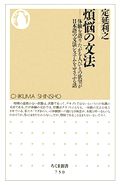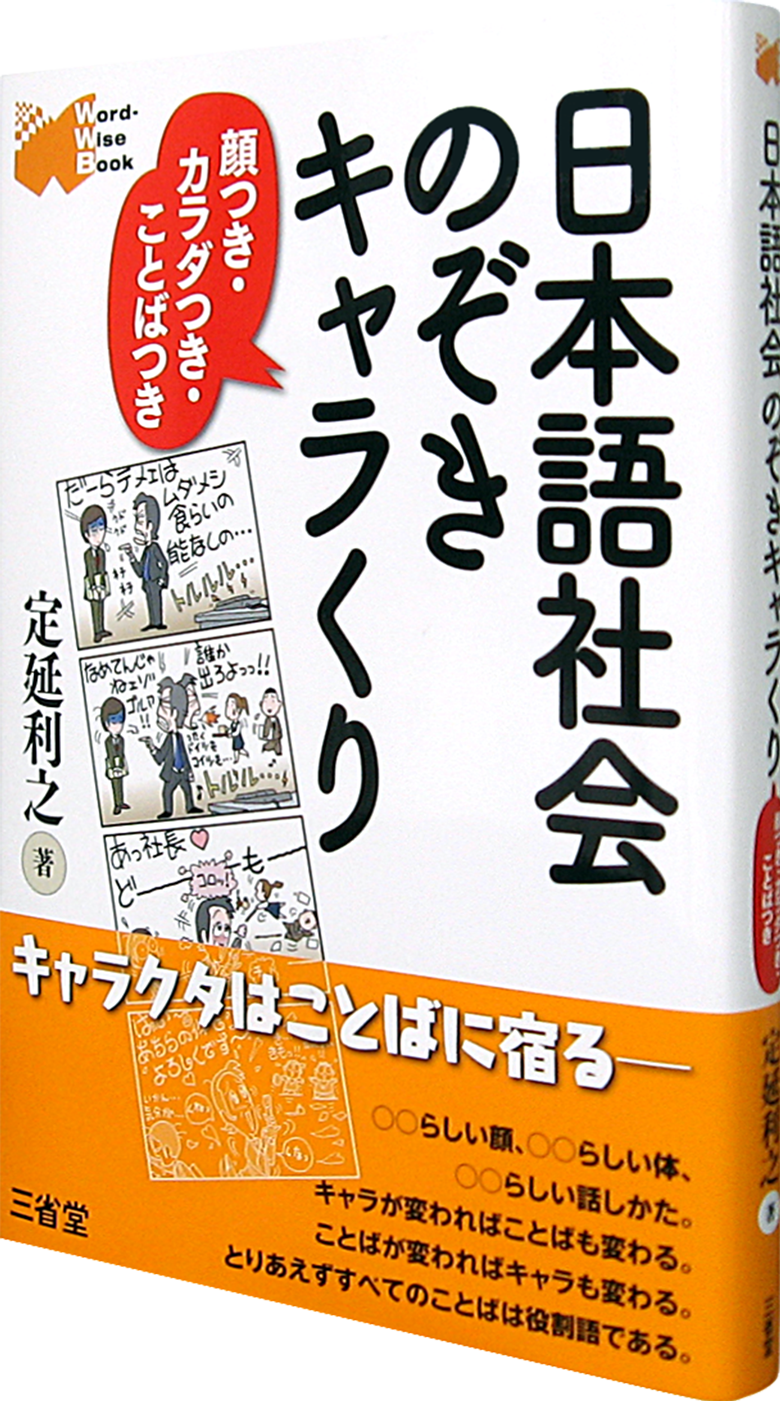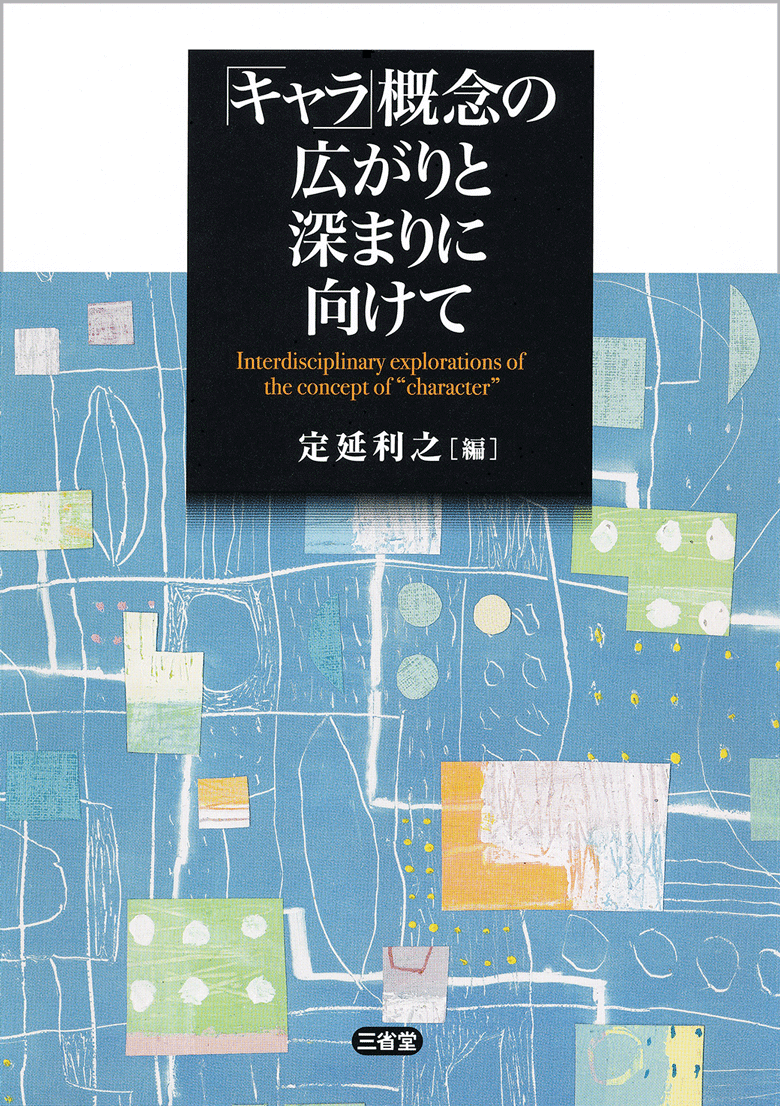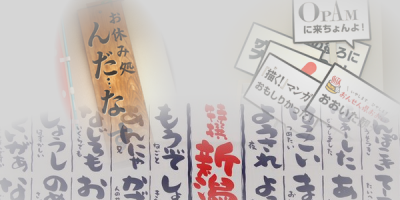
It would be the easiest thing in the world to explain the speech of “child” and “adult” characters by saying that “children” characters and “adult” characters are by nature thus and so, and therefore they use certain sorts of words. However, as we discussed last time, there are facets of the wording used by “child” and “adult” characters that are beyond the grasp of such “common-sense linguistics.” Let’s look a little more at some “adult” character speech that cannot be understood with “common-sense.”
Sometimes we say, “A, atta!” (Ah! It was here!) when we find something. Although the item is there, in front of our eyes, the feeling of discovery causes us to naturally savor the syllable “ta” in “atta” and for this reason, this “ta” is sometimes called the discovery “ta”(1) in Japanese linguistics.
Here I will get technical for a moment. There is a divide over this discovery “ta” as to whether or not it requires the speaker to anticipate finding an object in a general location. For example, one line of thinking is that in the sentence “A, techou atta!” (Ah! My bankbook was here!) it is not sufficient to have simply discovered the bankbook to pronounce the discovery “ta;” there must be some anticipation, no matter how faint, of finding the bankbook in that overall location. If one unexpectedly found one’s bankbook, some argue, one would be more likely to say “A, techou ga aru!” (Ah, here’s my bankbook), not “A, techou atta!” The schools of thought regarding this issue are divided into camps—those who believe prior anticipation is necessary, and those who believe it unnecessary. However, each camp simply accumulates descriptions of cases in which it is “necessary” or “unnecessary,” without any debate actually occurring between the two camps.
With regards to this problem, Dr. Hideo Teramura (1928–1990) stated that he did not think prior anticipation to be necessary. As grounds for this, Teramura cited a passage from Masuji Ibuse’s (1898–1993) novel Ekimae Ryokan(2) (1956–1957). In the passage, a spa attendant named Shono explains the eccentricities of Takazawa, another attendant.
This man had some strange mannerisms. When no one was looking, he had the odd habit of hiding his own coins between cracks in walls, then saying “Oya, koko ni zeni ga atta. Koitsu de ippai nomoo” (Oh! There was some money in here. Let’s use it to have a drink.) and then treating his companion to a drink.
(Masuji Ibuse Zenshuu Vol. 18, Chikumashobo Ltd.(3) [with modernized Kana orthography]).
Takazawa had no prior anticipation behind his utterance of “ta” in “Oya, koko ni zeni ga atta,” since, according to Shono’s reminiscence, Takazawa was acting as if he had, without any anticipation, innocently peeked into a crack in a wall and unexpectedly discovered some money. Because this “ta” can be produced naturally with no prior anticipation, Teramura believes prior anticipation to be unnecessary.
However, if we try constructing an example similar to Teramura’s, it doesn’t work very well. Consider the following scenario. You go hiking in the mountains with a friend. You glance up and, completely unexpectedly, see a monkey on top of a cliff. You point at the monkey so as to tell its existence to your friend. When college students were asked whether or not it would be natural to say “ta” in this situation—e.g. “Hora mite, anna tokoro ni saru ga ita yo” (Look! There was a monkey there, of all places.)—almost half responded that it would be “unnatural.” Despite this, nearly all college students surveyed accepted the “Oya, koko ni zeni ga atta” from Ekimae Ryokan as “natural.”
Teramura’s explanation is short, almost blunt, and ends concisely, but when asked, one of Teramura’s pupils (now retired from university) stated that, at the time, Teramura spent considerable time finding this example. So we can probably say that this example from Ekimae Ryokan was very carefully aimed.
So, is this Ekimae Ryokan example the only one that works? What exactly was Teramura “carefully aiming” at? Unfortunately, he is no longer with us and cannot answer these questions. We can only think about them for ourselves.
What are the differences between the Ekimae Ryokan case and the hiking case?
The character of the speaker.
In the hiking example, the speaker of the syllable “ta” in “anna tokoro ni saru ga ita yo” is assumed to be the person responding to the survey (a college student). However, in Ekimae Ryokan, the speaker is a rather old fashioned “adult” spa attendant who calls money “zeni” and invites people to drink with him using the phrase “koitsu de ippai nomoo.”(4)
In short, nearly half the college students judged that using the discovery “ta” without prior anticipation was not something that they themselves would do. But, it was an OK speech pattern for a stodgy old “adult” to use. This fact becomes even clearer when an “adult” is placed in the mountain hiking scenario. For example, if the hiking organizer is described as an officious older woman, who takes the liberty of deciding the trip on behalf of her entire group, the discovery “ta” becomes much easier to accept. Consider the below dialog.
Uwaa, suggoi kooyoo janai desukaa yappari kite mite yokatta deshoo. Doo desu ka, Tanaka-san. Nee. (Wow! Aren’t the autumn leaves lovely! I’ll bet you’re glad you came, Tanaka-san. Right?) Sooon mo nai shi, kuuki mo kiree da shi, a, mite mite, hora, anna toko ni saru mo imashita yo doo desu koree. (There’s no noise, and the air is fresh. Oh! Look look! There was a monkey there, of all places. How about that?)
As this example illustrates, whether or not one can say the discovery “ta” without prior anticipation depends in part on the speaker’s character.
Character is not just a matter of whether you refer to yourself as “ore,” “washi,” or “atashi,”(5) nor a matter of whether you express agreement with “soo desu,” “soossu” or “soo de ojaru,” nor even a matter of whether or not you add “pyoon” to the ends of your sentences like “soo da yo pyoon”. Character is also related to more “grammatical” uses of language, as we can see in the use of the discovery “ta” with no prior anticipation.
In Vaacharu Nihongo Yakuwarigo no Nazo (Iwanami Shoten 2003), Satoshi Kinsui states that “when we can imagine a specific profile (age, gender, occupation, status, era, features, appearance personality, etc.) from a specific language usage (vocabulary, wording, expressions, intonation, etc.), or when we are presented with a specific profile and can imagine the type of language people of that profile will probably use, this is called Role Language (yakuwarigo).”
If we assume that here “profiles” are equivalent to the “characters” we have been discussing, then the scope of the above Role Language turns out to be unusually broad; even expressions that seem usable by anyone, such as the discovery “ta” have a tinge of role language about them.
It is probably best to assume that “everything is Role Language,” then go back and make corrections if we turn out to be wrong about this.
The reason this entry has been rather longer than usual is that I wanted to introduce this topic of Role Language. In fact, Dr. Kinsui and myself will be jointly holding a symposium on “Role Language, Character, and Speech” at Kobe University on March 28 and 29 (Sat.–Sun.). I will just be making a presentation on the above topic, but a number of eminent scholars, such as Dr. Kinsui and Dr. Tomofusa Kure, and some fresh young researchers will also be giving talks. I encourage all of you to go. Admission is free, but you should inquire by email no later than March 10 if possible, as per the symposium website’s directions.
See here for further details(6) :
//www.let.osaka-u.ac.jp/~kinsui/char-sympo-2009.htm
* * *









(1) In Japanese, “hakken no ‘ta’.”
(2) Ekimae Ryokan translates as “the inn at the station.”
(3) Complete Works of Ibuse Masuji, Vol. 18, Chikumashobo Ltd.
(4) “Zeni” is a now fairly out of fashion word for money, although it’s still used in some parts of Japan. Similarly the use of the demonstrative pronoun “koitsu” instead of the more usual “kore” has a rather crusty ring to it.
(5) All of these are forms of the pronoun “I.” As explained elsewhere, “ore” and “atashi” are masculine and feminine respectively. According to the Daijirin dictionary (2nd Ed.) “washi” is used when the speaker is of higher status or rank than the listener.
(6) Unfortunately, this symposium was held in 2009. However, the website is still up, so readers can still read about it there (Japanese only).